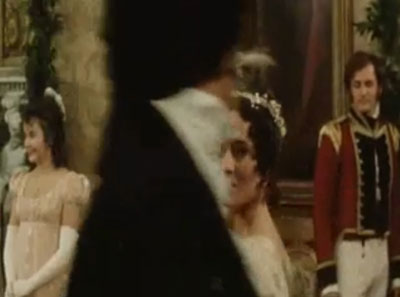Pride, Prejudice and The Beholder

That people keep their feelings hidden may well be a universal characteristic present in any human society but when it is a way of being as it was in Victorian England and perhaps continues to be even today, intrigue isn't the exception but the rule. It affects not just individual experiences but also the way language develops. Thus there is a theory that English is a language that circles around reality rather than pointing straight at it. It is a 'soft' form of communication so on occasions when it is used more directly, it can seem harsh. Having been developed to avoid offending, it is not an easy language of contestation. Observed but undeclared intentions and unusual behaviours are material for gossip which deepens the intrigue and confusion is always excellent material for drama. The truths of matters which could be settled with just three simple words fill an entire book with elusiveness and allusions in the ways of gentility, gestures and glances. The ensuing perceptions define the narrative. The foibles of its introspective culture make English a great literary medium and one of the greatest exponents of its innate subtleties was Jane Austen. Her works remain examples par excellence of a genre which she helped create: the drawing room drama of nineteenth century England; the bottom line being that her books never fail to engage and are hugely enjoyable both for reading and when re-interpreted as films.
It could be that, being a woman, she had visions and insights which escaped other great writers like Charles Dickens and Thomas Hardy. I don't know how much Henry James learnt from Austen. He was an acute observer of human thoughts and behaviour too but his women lack humour. For one, Austen was realistic about the female condition. Her female characters are not parts of some imagined female idyll. They and their ambitions appear true to themselves in responding to the social context of their situations. Above all, she paints her words in that fragile dimension of impressions made between seeing and feeling:
"Occupied in observing Mr. Bingley's attentions to her sister, Elizabeth was far from suspecting that she was herself becoming an object of some interest in the eyes of his friend. Mr. Darcy had at first scarcely allowed her to be pretty; he had looked at her without admiration at the ball; and when they next met, he looked at her only to criticise. But no sooner had he made it clear to himself and his friends that she hardly had a good feature in her face, then he began to find it was rendered uncommonly intelligent by the beautiful expression of her dark eyes. To this discovery succeeded some others equally mortifying. Though he had detected with a critical eye more than one failure of perfect symmetry in her form, he was forced to acknowledge her figure to be light and pleasing; and in spite of his asserting that her manners were not those of the fashionable world, he was caught by their easy playfulness. Of this she was perfectly unaware; to her he was only the man who made himself agreeable nowhere, and who had not thought her handsome enough to dance with."
Pride and Prejudice
'Beauty is in the eyes of the beholder.' In the above passage she adopts the literary device of expanding on the well known old proverb to create a compelling romantic prelude that is also, in effect, an analytic on the balance between objectivity and subjectivity. Perhaps she never intended to be philosophical but in her own way, it is far more comprehensible and homogenising than say, Kant's 'Critique of Pure Reason'. Somewhere else in her works, she writes, "If I loved you less, I might be able to talk about it more."
In the BBC movie version, what a fantastic expression on Elizabeth's face as she dances with Darcy!